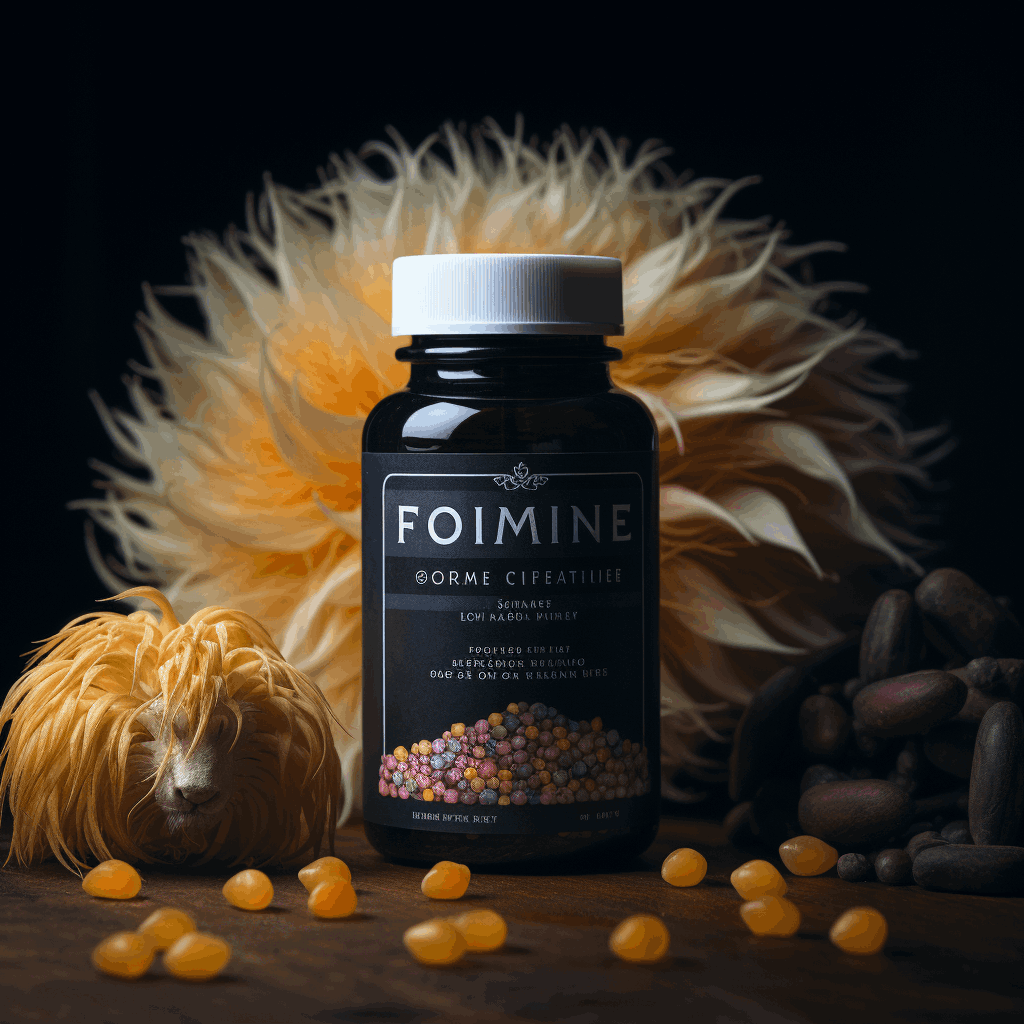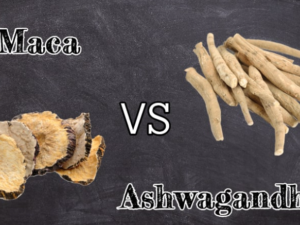Once upon a time, in the dense forests of Asia and North America, a fluffy, white, and unique mushroom sprouted. It resembled the mane of a lion, and lo and behold, it was named the Lion’s Mane Mushroom. But hang on a minute! What’s the hubbub about this mushroom? Rumors swirl about its psychedelic nature, and you might be itching to know, is lion’s mane mushroom psychoactive or is lion’s mane mushroom psychedelic? Hold your horses, as we take you through a roller coaster ride that unveils the mysteries, benefits, and cautions of this extraordinary fungus.
Is Lion’s Mane Mushroom Psychoactive?
Spoiler alert! The lion’s mane mushroom isn’t known for taking you on a trip through wonderland. Instead, it holds its fame for a plethora of health benefits. But wait, is lion’s mane mushroom psychoactive or in any sense? No, it’s not! It doesn’t cause hallucinations or alter your reality, but it’s heralded for supporting cognitive functions and brain health.
Waving the Magic Wand: Health Benefits
- Brain Booster Supreme: Studies show that it promotes the production of Nerve Growth Factor (NGF), waving its magic wand on your brain health.
- Depression and Anxiety Alleviator: If you’re down in the dumps, lion’s mane might help lift your spirits.
- Digestive Dynamo: With antibacterial properties, it’s like a superhero fighting against bad bacteria in your gut.
“Lion’s Mane mushrooms are a medicinal powerhouse.” – Dr. Josh Axe
Caution! Side Effects May Include…
Not to throw a wrench in the works, but it’s essential to talk about the potential side effects:
- Allergic Reactions: Like rolling the dice, you never know if you might be allergic.
- Lowered Blood Sugar Levels: Great news if you’re keeping an eye on your sugar intake, but not so much if you’re already on diabetes medication.
Incorporating Lion’s Mane into Your Diet
Take the bull by the horns and try adding lion’s mane to your diet!
- Lion’s Mane Tea: Steep dried lion’s mane in hot water.
- Supplements: If tea isn’t your cup of tea, lion’s mane supplements might be.
Expert Insights on Lion’s Mane Mushroom
Leading mycologist Paul Stamets described lion’s mane as “the first smart mushroom.” Stamets highlights its potential in stimulating neuron growth and protecting against dementia.
Debunking Myths: Clearing the Air
Let’s put the kibosh on the myth that lion’s mane mushroom is psychoactive. It doesn’t cause hallucinations. Instead, its neuroprotective properties are what make it a gem.

The Science Behind Lion’s Mane Mushroom
The Brainy Side of Lion’s Mane Mushroom: How It Boosts Cognition
Lion’s mane mushroom is like the Gandalf of mushrooms when it comes to brain health. Its compounds, hericenones and erinacines, are said to stimulate brain cells’ growth.
Immunity Guardian: Protecting the Body
The lion’s mane mushroom is like your personal bodyguard. It’s packed with antioxidants which help in boosting the immune system.
Historical Uses of Lion’s Mane Mushroom
Traditional Chinese Medicine and Lion’s Mane
In Traditional Chinese Medicine, the lion’s mane mushroom was considered a top-notch remedy. It was used for improving gut health and general vigor.
The Zen Connection: Meditation and Mental Clarity
Buddhist monks used lion’s mane mushroom tea to enhance their focus during meditation, earning it the nickname “The Monk’s Mushroom”.
Is Lion’s Mane Mushroom Psychedelic?
The Lion’s Mane mushroom is a fascinating fungus that has garnered attention for its potential health benefits. However, some individuals might be curious to know, “are Lion’s Mane mushrooms psychedelic?” It’s essential to understand that Lion’s Mane mushrooms are not psychedelic; they do not cause hallucinations or altered states of consciousness like other mushrooms such as Psilocybin-containing ones. Instead, Lion’s Mane mushrooms are believed to have cognitive-enhancing properties and have been researched for their potential in supporting brain health. Many people use them as a dietary supplement for their possible benefits in improving memory, focus, and mood, but without the psychedelic effects associated with some other types of mushrooms.
So the phrase “is Lion’s Mane mushroom psychedelic” can be definitively answered with a no; Lion’s Mane mushrooms have potential cognitive-enhancing properties without inducing the psychedelic experiences associated with other types of mushrooms.
Are Lion’s Mane Mushrooms Hallucinogenic?
Lion’s Mane mushrooms are not hallucinogenic. It is essential to understand that the question ” are lion’s mane mushrooms hallucinogenic ” is incorrect. Lion’s Mane mushrooms, despite their striking appearance resembling a lion’s mane, do not possess hallucinogenic properties. They are frequently used in cooking due to their distinctive taste and texture. Although Lion’s Mane mushrooms are recognized for their potential health benefits, particularly in relation to brain health and cognitive function, it is crucial to clarify that they are not hallucinogenic. To summarize, are lion’s mane mushrooms hallucinogenic? Lion’s Mane mushrooms are edible fungi that do not induce hallucinations.
Do Lion’s Mane Mushrooms Make You Trip?
Lion’s Mane mushrooms have gained considerable attention in recent years due to their potential health benefits and unique characteristics. However, there seems to be some confusion surrounding their effects on perception, leading to questions like “Do Lion’s Mane mushrooms make you trip?” or “Can Lion’s Mane mushrooms make you trip?” In this blog section, we will delve into these inquiries and uncover the truth behind the psychedelic claims associated with Lion’s Mane mushrooms.
To put it simply, Lion’s Mane mushrooms do not have hallucinogenic properties and, therefore, do not induce trips or psychedelic experiences. Unlike certain mushrooms such as psilocybin-containing species, Lion’s Mane mushrooms are not known for altering perception, producing visual distortions, or inducing mind-altering effects.
Research suggests that Lion’s Mane mushrooms may offer potential cognitive benefits, including improved brain function and memory enhancement. They are believed to contain compounds that promote the production of nerve growth factors, which are vital for the growth and maintenance of brain cells. Additionally, Lion’s Mane mushrooms possess antioxidant and anti-inflammatory properties, making them a valuable component of a healthy diet.
It is worth noting that while Lion’s Mane mushrooms provide numerous potential health benefits, they do not possess hallucinogenic or psychedelic qualities. The confusion may arise from their unique appearance, as they feature long, shaggy spines that resemble a lion’s mane. However, this striking visual characteristic should not be misconstrued as an indicator of hallucinogenic effects.
If you are interested in incorporating Lion’s Mane mushrooms into your diet, it is crucial to seek out reputable sources and properly prepare them. Whether consumed fresh, cooked, or in supplement form, Lion’s Mane mushrooms can be a delicious and nutritious addition to various dishes. They can be sautéed, added to soups, stews, or stir-fries, or even brewed into teas.
Conclusion: The Lion’s Mane Mushroom Odyssey
Is lion’s mane mushroom psychoactive? Now you know it’s not! It’s a natural treasure trove of benefits, especially for the brain. However, like with everything else, moderation is key. Don’t go mushroom crazy!








